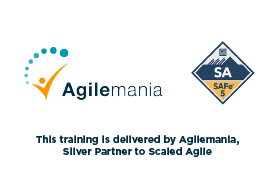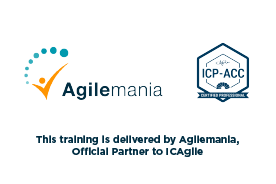
1:1 Coaching
24*7 Support
Comprehensive Exam Support
Lifetime PSM Certification Validity
Globally Renowned PSTs Trainer
High Success Rate
Course Description
Key Objective
Students gain a solid understanding of core concepts as they prepare to embark on their agile journey. Consequently, participants leave the course more confident in the following key areas:
- The intention behind Agile practices
- Value driven development
- Adaptive planning
- Customer engagement in Agile
- Putting Agile framework into action
- Origin and History of Agile
- Agile Values and Principles
- Clarity about transitioning to the Agile roles
- What is an Empirical Process?
- Deeper understanding about various agile frameworks
- Understanding about where to use Scrum, Kanban or both
- Overview about Scrum framework
- Scrum Roles, Artifacts and events
- Understanding Definition of Done and Acceptance Criteria
- Exploring differences between various frameworks
- Tools for Agile Project Management
- Tracking and measuring project success in agile
- Value delivery vs Fixed Schedule Project
- Essential elements for Agile Way of Working
About Trainers
Certification Curriculum
METHODOLOGY
Participants learn through lots of collaborative activities. Training facilitators focus on individual and interactions rather than theory. Participants work in small teams to learn and play all the roles to understand the importance of Scrum Team. Agenda will be flexible enough to incorporate class feedback at the end of every sprint. Workshop will have demonstrations on how to manage agile projects through one of the tools such as Trello or Jira. Participants will have the opportunity to practice during the training. Facilitator will use relevant sample projects to simulate agile project execution using Scrum and Kanban.
 Origins of Agile
Origins of Agile
Many people entering the Agile world see the Agile Manifesto as the beginning of the world, where it was really the summing up of much previous work. Anchor the ideas of Agile development in earlier work, giving the learners continuity from the past to the present.
 Agile Manifesto
Agile Manifesto
The 2001 Manifesto for Agile Software Development is still the anchor document for all forms of Agile development. Make clear that the Agile Manifesto is a set of values, not a prescription for a process. Also, learners should be introduced to the fact that the values on the left are preferable to those on the right.
 Understanding the Agile Mindset
Understanding the Agile Mindset
Many people come to Agile looking for “the Agile process”. However, while some processes and methodologies may be more supportive or common in Agile organizations than others, the mindset must come first. Introduce Agile as a mindset and explain that agility is achieved through both “being” and “doing” Agile. The Agile mindset is characterized by things like valuing early failure for learning, collaboration, continuous improvement, continuous discovery, etc.
 Establishing the Agile Mindset
Establishing the Agile Mindset
Experiencing the Agile mindset is the best way to establish it in a learner. Allow the learner to experience situations in which the Agile mindset is likely to be different from their current way of working, so the learner can internalize the difference experientially, not just in concept.
 Incremental Development
Incremental Development
One anchor of Agile development is incremental development. Introduce the concept and value of incremental development, and how it differs from effort-based or task-based management.
 Value-Based Work
Value-Based Work
Many people, even understanding the idea of incremental development can’t see how to break work into small, value-centered work items and track their progress. Develop and practice techniques for breaking problems into value-based parts and tracking progress against them.
 Retaining Quality
Retaining Quality
It is easy to lose sight of the cost of rework in incremental-iterative development. Introduce and highlight why Agile developers need to keep an eye
 The Scrum Framework
The Scrum Framework
How is the Scrum theory implemented through time-boxes, events, roles, rules and artifacts? How can these be used most effectively? We will experience why the Scrum framework is constructed as it is and how you as Scrum Master can effectively use Scrum to control risks and create maximum value.
 Scrum Roles – Product Owner, Scrum Master and Development
Scrum Roles – Product Owner, Scrum Master and Development
Who is supposed to be a good product owner? What does the Product Owner do in Scrum? Do they write stories or maximize value? Why do we need a Scrum Master? Who decides Scrum Master for the team? What’s the meaning of a Self-Organized Development Team? Is Self-organizing team good enough or do we need a self- managed team? Developers are cross-function or Development Team is cross-functional?
 The Definition of Done & Acceptance Criteria
The Definition of Done & Acceptance Criteria
Are you able to deliver a truly done product? What does “DONE” mean in Scrum and why is it important? Workshop focus differentiating DONE and UNDONE but also brings discussion about Technical Debts.
Participants have to learn the meaning of DONE increment by defining definition in the workshop. Why is not having technical debt is critical to growing an organization? How is the Acceptance Criteria different from the Definition of DONE?
 Working with organizational challenges
Working with organizational challenges
AWhy change is hard and what can be done to make it real? What organizational changes are needed to see real benefits of Scrum?
 Non-functional requirements
Non-functional requirements
Identifying and responding to non-functional requirements to ensure they don’t get lost in the process of defining product success and lead to hidden risks.
 Using Agile metrics
Using Agile metrics
Using key metrics and visualizing them with cumulative flow diagrams to help see where work is and how to improve the flow from concept to reality. Helping product owners to focus upon the right metrics and avoid those metrics that drive undesirable behaviors in development teams and by stakeholders.
 Working with the development team and stakeholders
Working with the development team and stakeholders
Understand the role of the product in relation to the development team, how best to support them and what they need from a product owner to be effective in their role. Working with stakeholders, keeping them informed of progress and risks, influencing their decision making and managing expectations.
 Tracking and Measuring Project Success in Agile
Tracking and Measuring Project Success in Agile
How to measure success of an agile project in an ever evolving requirement? Discussion around key metrics like business values, velocity chart, release burndown and sprint burndown. How to incorporate feedback in forecast and how to forecast project completion date.
 Agile Transformation
Agile Transformation
How to start the Agile Transformation journey.
Prerequisites
There are no specific requirements needed to attend this workshop. If you are looking for improvements in the way they work, want to start using Agile at work or levelling up their knowledge, have creative work that requires frequent feedback from the client or user.
Download Brochure
We at Agilitics offer 1-days Agile and Scrum Fundamental Bootcamp to build Agile Practitioner knowledge, leading to your Agile Foundations Certification. Download the brochure and check the different focus areas that are covered within these three days of training.
Certification Assessment
After completion of the workshop, each participant will receive a certificate from Agilitics granted as Agile and Scrum Fundamental Bootcamp training.
- High Success rate
- Join Our Dynamic Community
- Training from Recognized Trainer
- Post-workshop support by the Coaches
Testimonials
Our clients praise us for our great results, personable service, expert knowledge, and on-time delivery. Here are what just a few of them had to say:
About Funding Detail
Agilitics is one of the training provider partners with CITREP+ & UTAP under entrusted to develop and offer quality Infocomm professional development technology courses in areas aligned to build a strong core of ICT professionals with Smart Nation capabilities.
- CITREP+ funding support provides up to 70-90% rebate for Singapore Citizens and Permanent Residents.
- CITREP+ funding support is also extended to Students and/or Full-Time National Service (NSF) with up to 100% rebate.
- Ge benefit is to encourage more union members to go for skills upgrading.
- Enjoy a 50% discount off unfunded course fee support for up to $250 each year training benefits for courses under the Union Training Assistance Programme (UTAP) per year.
Training FAQ's
As a response to the COVID-19, we have moved our classes online. Our Live Virtual format delivers the same benefits as our face-to-face training: expert instruction, hands-on labs and exercises, peer-to-peer collaboration, and high-quality instructional material.
Cancellation requests received within 24 hours of registration would be offered a full refund (minus payment gateway charges), please reach out to our support team through drop a refund request to enquiry@agilitics.sg. Visit our page for more details about Cancellation & Refund Policy.
The process of enrolling for this classroom training is simple. The payment can be made through different options by using a debit/credit card which includes MasterCard, Visa Card, American Express or through PayPal. Acknowledgment will be issued automatically via email to the candidates once payment is done.
Payment can be made via credit card, debit card, UPI, and internet banking.
Please send in an email to enquiry@agilitics.sg, and we will answer any queries you may have!








